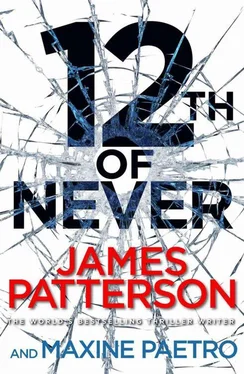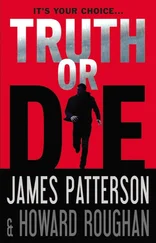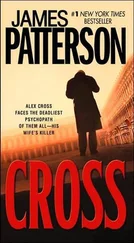Yuki felt blindsided.
Nussbaum said, “Redirect, Ms. Castellano?”
Lynnette had her head down and was sobbing into her crossed arms.
Yuki didn’t know what she could do to rehabilitate the woman who had taken great big gobs of money from the man she said she loved.
Chapter 37
YUKI BROUGHT A box of tissues to the stand and let Lynnette take a couple of seconds to pull herself together. Yuki had made a mistake not to have realized that Kinsela was going to use Keith Herman’s gifts against Lynnette.
It was a sickening oversight. But was it fatal?
As Lynnette dabbed her eyes, Yuki thought out her redirect with the speed of a supercomputer, and when the witness seemed more or less composed, Yuki said, “Lynnette, did you ever try to hide the fact that you received gifts from Keith Herman?”
“No, of course not.”
“Did these gifts always come on holidays?”
“Yes.”
“Did Keith ever tell you why he bought you such expensive presents?”
Yuki took a slow turn away from the witness stand, headed toward the lectern, and stole a look at the jurors. They were attentive. For the moment, that was all she could hope for.
“Could you repeat the question?” Lynnette said.
She was still looking shaky, Yuki thought, but shaky was vulnerable and vulnerability was better than defiance any day.
“Lynnette, did Keith ever tell you why he bought you such expensive gifts?”
“He said different things at different times.”
“Go on,” Yuki said.
“He said that until he was free, this was the only way he could show me how much he cared.”
“Anything else?”
“He said that he felt guilty for my pain and suffering.”
“Pain and suffering. Those were his words?”
“Yes.”
“The money that Keith gave you—what was it for?”
“He gave me twenty-two thousand dollars to pay off my student loan. I appreciated the help. I don’t make a large salary.”
“Did you expect to cash in—that is, get rich—from marrying Keith Herman?”
“I knew he had money. But the only thing that was important to me was that we had a real relationship, with holidays together, and that I could be with Lily. I wanted to be able to go out into the open, to stop feeling bad because I loved someone else’s husband. And when I saw that I couldn’t have that, I tried to break it off with Keith many, many times.”
“And Keith pursued you, isn’t that right?”
“Yes.”
“You testified that you changed your phone number. You moved out of your home.”
“Yes.”
“On the weekend of February twenty-eighth through March first, were you with the defendant?”
“No. I was not. I was alone in the hunting cabin my father left me in Oroville. I don’t have a TV there. I don’t even get a cell phone signal. I just wanted to be by myself.”
“So when the defense tells the court that Keith Herman was with you the weekend his wife and daughter were murdered, that’s a lie, isn’t it?”
The witness winced ever so slightly. Yuki took it to mean that Lynnette still loved Keith Herman.
“Yes,” she said. “That’s a lie.”
“Thank you, Ms. Lagrande. I have nothing more for this witness, Your Honor.”
Kinsela had nothing to add, a good move on his part, Yuki thought. If one juror believed that Lynnette Lagrande was a money-grubber and a liar, Kinsela had done his job.
Yuki watched Lynnette Lagrande step down from the stand. She had recovered much of her poise. Looking neither left nor right, she walked up the aisle and back out through the front door of the courtroom.
Had the jury believed her?
All of them?
Honest to God, Yuki didn’t know.
Chapter 38
CONKLIN AND I stood outside Tracey Pendleton’s front door. Her house was small and nearly identical to the surrounding cheap wooden houses, which had been built in the fifties.
School was out. Kids called out to each other as they biked along the patched asphalt on the poor residential street. Cars with loud radios and old mufflers sped past.
We had knocked on the door, peered through the dirty windows, and looked up and down to see if Pendleton’s Camaro was parked anywhere on Flora Street. It wasn’t.
It didn’t appear that the ME’s night-shift security guard was at home.
Conklin and I had our weapons out and were ready to execute the warrant that gave us the legal right to break down Pendleton’s door.
I stood back, looked under the cushion of the porch rocker, and found it just as Conklin kicked open the door.
“Oops,” I said, holding up the key.
Conklin called out, “Miss Pendleton, this is the police. Please come out with your hands over your head. We just want to talk to you.”
There was no response and no sound coming from the house at all.
The house had two and a half rooms—about four hundred square feet altogether—and I could see almost every inch of it from the doorway.
We were standing in the living room, which was furnished with a worn brown sofa and a sagging armchair. The TV was off, and the only movement was the upward spiral of dust motes in the dim ray of sunlight coming through the window.
Conklin went ahead of me and toed open the bedroom door. A moment later, he called, “Clear.”
I went ahead to the kitchenette, checked the broom closet, then called out to Conklin that the room was empty.
There was a pot of old food on the stove, one dirty dish, one glass in the sink. The refrigerator was empty, except for the bottle of vodka in the freezer. The garbage pail held two beer bottles and an empty can of Beefaroni.
Conklin came in and said, “Her suitcase is in the closet. I couldn’t find a weapon.”
He checked under the sink and found more vodka standing among the containers of Mr. Clean, Easy-Off, and Windex.
We went through the house again. There was no computer, no sign of pets. No purse. No keys. We searched the hamper, the cabinets, and drawers, but found nothing but the residue of a life lived on the night shift and boozy days spent passed out on a single bed.
Conklin used a dish towel to pick up the phone. He tapped the redial button, then let me hear the ringing. The call was answered by a recorded woman’s mechanical voice announcing the time and temperature.
Conklin said, “It’s like she checked the time, went to work, then vanished along with Faye Farmer’s body. Where’d she go? Who is she, anyway?”
I called the squad room.
“Lieutenant, we need a warrant to dump Pendleton’s phone records and see her bank activity. Yeah, there’s no sign she’s been home in the last twenty-four hours. There’s hardly any sign of life here at all.”
Chapter 39
WE WERE SEATED at the polished stone conference table at Fenn & Tarbox. Brady, Conklin, and I sat along one side. Five lawyers and their thirteen-million-bucks-a-year client held down the swivel chairs across from us, the backs of their heads reflected in the floor-to-ceiling windows. Beyond the glass was a wide waterfront view of the Ferry Building and the Bay Bridge, sparkling against a dusky sky.
We’d been introduced to the senior partner, the silver-haired George Fenn, who now took his place at the head of the table. I forgot the names of his younger associates because I was riveted by their client, Jeffrey Kennedy, superstar linebacker for the San Francisco 49ers and also the former reputed fiancé of the late celebrity designer Faye Farmer.
Fenn was friendly, even affable, when he said, “I’ve heard a lot about you, Sergeant Boxer. All good. I’m glad you’re working this case.”
Maybe he was glad that I was working the case. Or maybe the big-time lawyer was working me so that we didn’t bring his client down to the Hall for questioning.
Читать дальше












